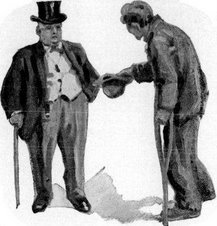iPhone was announced, raised up as a messianic product, suffered a backlash (already, five months before it ships), and is still supplying fresh blogfodder:
First, what everyone knew from 10 seconds into the demo, is that iPhone is not a defensive move. Apple did not merely forestall what has been the oft-repeated and never realized prediction that mobile phone unit volume would inevitably crush iPod under a tide of carrier-subsidized music players. Apple is now the maker of the most desired phone on the planet.
Nobody has ever gone from zero to the very top of the game with their first mobile phone product. Expectations for the iPhone were that it would be a Very Nice Phone inside of an iPod. But only that. Instead Apple has created a new mobile phone OS and UI platform and implemented it to a level of polish above all others. They put this new software into a vessel that is, once again, the nicest package in the business. Only this time in a demanding and mature business to which Apple is a new entrant.
How much better is iPhone? Despite the very competent efforts put into mobile user interface systems like UIQ and Series 60 UI, has anyone ever really been impressed by the results? At best, users of existing products find them adequate. Inoffensive. Nice that they don't often get in the way of an important task, like reading e-mail. Meeting this standard is what Apple was expected to do. Instead they passed it from a standing start and are now in the lead.
The only knock on the iPhone is that it does nothing new, other than provide a visual interface to voicemail. But even that modest advance was a zinger. Handset product managers world-wide are dope-slapping themselves for not pushing that through in the fifteen years since that has been technologically do-able.
But this is Apple: Making the object of desire is just the start. Apple also took the challenging environment for selling a mobile phone into the U.S. Mobile network operators' channel and turned it into a work of art comparable to the iTunes contract negotiations.
By giving a willing network operator the temporary advantage of exclusivity, Apple got at least two critical benefits: Apple set terms that drive a wedge into the garden wall of mobile content sales by keeping iTunes sales off the mobile network. Apple also got the benefit of not having the iPhone subsidized by the network operator. That's correct – the benefit. In both cases one imagines the negotiations to have gone a bit like asking not to be thrown into the brier patch.
By keeping iTunes sales off the mobile network Apple completely hornswoggled Cingular. Cingular is a network operator. So who came off worse: Apple, for having to require that their customers use WiFi to download iTunes purchases? Or Cingular for having failed to sell the use of their network for this purpose? Cingular has ripped a hole in the wall in order to get that big wooden horse inside. Users of Nokia E-series handsets already know the real Web over WiFi is a much nicer experience than the mobile Web. Now millions of Cingular users will be comparing the iTunes over WiFi experience with the typical mobile content shop experience.
Which leads to the next issue: Why would Cingular subsidize an iPod, especially when it isn't using Cingular's network? Turns out they don't have to. Which also frees Apple from the prospect of music-only iPods competing against subsidized iPhones, and from mobile network operators using varying levels of subsidy, resulting in a range of iPhone prices, once the term of exclusivity expires. No subsidy also makes it easier for Apple to sell iPhone in Apple stores.
Keep in mind that MNOs' executives had not seen the iPhone. The only precedent they had to work with was the first iPod, which was hardly a revolutionary looking device. In agreeing to terms that appeared to be solutions to some practical problems when they were negotiated, they gave Apple the levers to move the mobile handset business in directions advantageous to Apple. As in the case of Blackberry subscription revenue, the mobile industry is willing to shift on some fundamental points of the handset vendor relationship if the handset brings with it significant end-user demand. But unlike Blackberry, it wasn't just a matter of revenue sharing.
It took two years for iPod to gain momentum. Analysts project that iPhone will take 1% of the mobile phone market fairly quickly. If sales fall into the range of 5 to 15 million units over 12 months Apple will roughly match their only near-direct competitor: Nokia Nseries, which sold 6 million units last quarter. In about two years Apple will have a product line as broad as Nseries, and could take 5% of the mobile handset business, and a really hefty chunk of the total profits, since Apple won't be selling any low-end handsets.
Are Cingular chumps for agreeing to these terms? Not really. They will look like geniuses for seizing what will be one of the very few opportunities to move a couple million subscribers to their network. The strategic impact of iPhone on the mobile industry will only be felt once the product exists in millions of units, and it will be spread throughout the industry. Apple will be free to set pricing of handsets, and will be free to operate a parallel commerce channel on a parallel network. No other handset maker has ever taken as much away from a negotiation. Even Qualcomm would be jealous of that kind of leverage.
What about the impetus – defending against mobile phones that are also media player? It sure looks like iPhone is a solid defense. But is there really a threat to defend against? Apple will sell more than 100M iPods in 2007. That is about one tenth the number of mobile phones that will be sold. The iPod market is now too big to be “crushed.”
Those engaged in building a mobile phone-based music business will have to contend with a fragmented handset technology and m-commerce landscape. Only Qualcomm and, perhaps, Nokia have control over enough of that landscape to mount a challenge, and to do it comprehensively from e-commerce channel to handset. On top of that, a mobile music challenger will have to use the mobile data network to deliver content of similar quality to that available on iTunes. And on top of that the prices will have to meet iTunes prices. Being able to buy on the go, out of WiFi range, just isn't enough to justify a higher price.
By the time a mobile music challenger really gets going, Apple will have new iPhone models on the market, and will be on the way to taking 5% of the mobile handset business and not just defending itself against the mobile music business, but being the mobile music business.





Interesting Feature Comparison between the iPhone OS and Windows Mobile 5
ReplyDeleteiPhone - Already an Outdated Technology????
The comparisons between iPhone and Windows Mobile, Symbian, Blackberry OS, etc. are beside the point. iPhone isn't a smartphone, and it isn't competing against Blackberry.
ReplyDeleteTake this example as illustrative of why the comparison doesn't work: Most smartphones and PDAs have been adequate media players for five years now. None of them competes well against iPod. And the answer to why won't be found in a features list.
Just like the way iPod and iTunes work together to beat the competition, so will the new way iPhone and iTunes work together, and the new way iPhone is sold be a combination to beat the competition in phones that are media players.